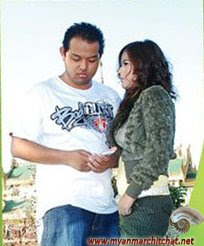Myanmar Online Library | Weenyinthit


and more...
Read more!
Myanmar ChitChat is an entertainment blog that keep updating latest news about myanmar models, girls, celebrities, actresses and other news. Mainly On::Myanmar Sexy Celebrities,Myanmar Sexy Actresses,Myanmar Sexy Model Girls,Myanmar Singers,Myanmar Sexy Artists,Myanmar Foods,Myanmar Places,sex &city,Myanmar no-naked models,Myanmar Musics,Myanmar Ladies,Moe Hay Ko,Thin Zar Wint Kyaw,Myanmar no-nude girls,Myanmar Web Design,Chat,Downloads,Britney,Zawgyi,Cartoons,Poems
Myanmar Online Library | Weenyinthit


Posted by
FreshelStar
at
Saturday, January 31, 2009
![]()
![]()
Insurance Is one of popular and sometimes compulsory to have it as one of your properties. Whenever you want to travel, live, drive or go to hospital, you may need insurance for any risk. Having insurance is not like virus-proof nor accident-proof. But it'll be your helpful & compensated cost for all damages to your properties and health if you have those. As one of health insurance, you just need to pay about $75 yearly and you can get 50% of your total cost of your medical treatment at any hospital which is up to $1500. Insurance company will pay for your cost of treatment partially or completely depending on type of your insurance. It also does same in car insurance, travel insurance and others.
Insurance, in law and economics, is a form of risk management primarily used to hedge against the risk of a contingent loss. Insurance is defined as the equitable transfer of the risk of a loss, from one entity to another, in exchange for a premium, and can be thought of as a guaranteed small loss to prevent a large, possibly devastating loss. An insurer is a company selling the insurance; an insured or policyholder is the person or entity buying the insurance. The insurance rate is a factor used to determine the amount to be charged for a certain amount of insurance coverage, called the premium. Risk management, the practice of appraising and controlling risk, has evolved as a discrete field of study and practice.
Types of insurance
Any risk that can be quantified can potentially be insured. Specific kinds of risk that may give rise to claims are known as "perils". An insurance policy will set out in detail which perils are covered by the policy and which are not. Below are (non-exhaustive) lists of the many different types of insurance that exist. A single policy may cover risks in one or more of the categories set out below. For example, auto insurance would typically cover both property risk (covering the risk of theft or damage to the car) and liability risk (covering legal claims from causing an accident). A homeowner's insurance policy in the U.S. typically includes property insurance covering damage to the home and the owner's belongings, liability insurance covering certain legal claims against the owner, and even a small amount of coverage for medical expenses of guests who are injured on the owner's property.
Business insurance can be any kind of insurance that protects businesses against risks. Some principal subtypes of business insurance are (a) the various kinds of professional liability insurance, also called professional indemnity insurance, which are discussed below under that name; and (b) the business owner's policy (BOP), which bundles into one policy many of the kinds of coverage that a business owner needs, in a way analogous to how homeowners insurance bundles the coverages that a homeowner needs.[8]
Auto insurance
Main article: Vehicle insurance
A wrecked vehicle
Auto insurance protects you against financial loss if you have an accident. It is a contract between you and the insurance company. You agree to pay the premium and the insurance company agrees to pay your losses as defined in your policy. Auto insurance provides property, liability and medical coverage:
1. Property coverage pays for damage to or theft of your car.
2. Liability coverage pays for your legal responsibility to others for bodily injury or property damage.
3. Medical coverage pays for the cost of treating injuries, rehabilitation and sometimes lost wages and funeral expenses.
An auto insurance policy comprises six kinds of coverage. Most countries require you to buy some, but not all, of these coverages. If you're financing a car, your lender may also have requirements. Most auto policies are for six months to a year.
In the United States, your insurance company should notify you by mail when it’s time to renew the policy and to pay your premium. [9]
Home insurance
Main article: Home insurance
Home insurance provides compensation for damage or destruction of a home from disasters. In some geographical areas, the standard insurances excludes certain types of disasters, such as flood and earthquakes, that require additional coverage. Maintenance-related problems are the homeowners' responsibility. The policy may include inventory, or this can be bought as a separate policy, especially for people who rent housing. In some countries, insurers offer a package which may include liability and legal responsibility for injuries and property damage caused by members of the household, including pets.[10]
Health
Main articles: Health insurance and Dental insurance
NHS Facility
Health insurance policies by the National Health Service in the United Kingdom (NHS) or other publicly-funded health programs will cover the cost of medical treatments. Dental insurance, like medical insurance, is coverage for individuals to protect them against dental costs. In the U.S., dental insurance is often part of an employer's benefits package, along with health insurance.
Disability
* Disability insurance policies provide financial support in the event the policyholder is unable to work because of disabling illness or injury. It provides monthly support to help pay such obligations as mortgages and credit cards.
* Disability overhead insurance allows business owners to cover the overhead expenses of their business while they are unable to work.
* Total permanent disability insurance provides benefits when a person is permanently disabled and can no longer work in their profession, often taken as an adjunct to life insurance.
* Workers' compensation insurance replaces all or part of a worker's wages lost and accompanying medical expenses incurred because of a job-related injury.
Casualty
Casualty insurance insures against accidents, not necessarily tied to any specific property.
Main article: Casualty insurance
* Crime insurance is a form of casualty insurance that covers the policyholder against losses arising from the criminal acts of third parties. For example, a company can obtain crime insurance to cover losses arising from theft or embezzlement.
* Political risk insurance is a form of casualty insurance that can be taken out by businesses with operations in countries in which there is a risk that revolution or other political conditions will result in a loss.
Life
Main article: Life insurance
Life insurance provides a monetary benefit to a decedent's family or other designated beneficiary, and may specifically provide for income to an insured person's family, burial, funeral and other final expenses. Life insurance policies often allow the option of having the proceeds paid to the beneficiary either in a lump sum cash payment or an annuity.
Annuities provide a stream of payments and are generally classified as insurance because they are issued by insurance companies and regulated as insurance and require the same kinds of actuarial and investment management expertise that life insurance requires. Annuities and pensions that pay a benefit for life are sometimes regarded as insurance against the possibility that a retiree will outlive his or her financial resources. In that sense, they are the complement of life insurance and, from an underwriting perspective, are the mirror image of life insurance.
Certain life insurance contracts accumulate cash values, which may be taken by the insured if the policy is surrendered or which may be borrowed against. Some policies, such as annuities and endowment policies, are financial instruments to accumulate or liquidate wealth when it is needed.
In many countries, such as the U.S. and the UK, the tax law provides that the interest on this cash value is not taxable under certain circumstances. This leads to widespread use of life insurance as a tax-efficient method of saving as well as protection in the event of early death.
In U.S., the tax on interest income on life insurance policies and annuities is generally deferred. However, in some cases the benefit derived from tax deferral may be offset by a low return. This depends upon the insuring company, the type of policy and other variables (mortality, market return, etc.). Moreover, other income tax saving vehicles (e.g., IRAs, 401(k) plans, Roth IRAs) may be better alternatives for value accumulation.
Property
Main article: Property insurance
This tornado damage to an Illinois home would be considered an "Act of God" for insurance purposes
Property insurance provides protection against risks to property, such as fire, theft or weather damage. This includes specialized forms of insurance such as fire insurance, flood insurance, earthquake insurance, home insurance, inland marine insurance or boiler insurance.
* Automobile insurance, known in the UK as motor insurance, is probably the most common form of insurance and may cover both legal liability claims against the driver and loss of or damage to the insured's vehicle itself. Throughout the United States an auto insurance policy is required to legally operate a motor vehicle on public roads. In some jurisdictions, bodily injury compensation for automobile accident victims has been changed to a no-fault system, which reduces or eliminates the ability to sue for compensation but provides automatic eligibility for benefits. Credit card companies insure against damage on rented cars.
o Driving School Insurance insurance provides cover for any authorized driver whilst undergoing tuition, cover also unlike other motor policies provides cover for instructor liability where both the pupil and driving instructor are equally liable in the event of a claim.
* Aviation insurance insures against hull, spares, deductibles, hull wear and liability risks.
* Boiler insurance (also known as boiler and machinery insurance or equipment breakdown insurance) insures against accidental physical damage to equipment or machinery.
* Builder's risk insurance insures against the risk of physical loss or damage to property during construction. Builder's risk insurance is typically written on an "all risk" basis covering damage due to any cause (including the negligence of the insured) not otherwise expressly excluded.
* Crop insurance "Farmers use crop insurance to reduce or manage various risks associated with growing crops. Such risks include crop loss or damage caused by weather, hail, drought, frost damage, insects, or disease, for instance."[11]
* Earthquake insurance is a form of property insurance that pays the policyholder in the event of an earthquake that causes damage to the property. Most ordinary homeowners insurance policies do not cover earthquake damage. Most earthquake insurance policies feature a high deductible. Rates depend on location and the probability of an earthquake, as well as the construction of the home.
* A fidelity bond is a form of casualty insurance that covers policyholders for losses that they incur as a result of fraudulent acts by specified individuals. It usually insures a business for losses caused by the dishonest acts of its employees.
* Flood insurance protects against property loss due to flooding. Many insurers in the U.S. do not provide flood insurance in some portions of the country. In response to this, the federal government created the National Flood Insurance Program which serves as the insurer of last resort.
* Home insurance or homeowners' insurance: See "Property insurance".
* Landlord insurance is specifically designed for people who own properties which they rent out. Most house insurance cover in the U.K will not be valid if the property is rented out therefore landlords must take out this specialist form of home insurance.
* Marine insurance and marine cargo insurance cover the loss or damage of ships at sea or on inland waterways, and of the cargo that may be on them. When the owner of the cargo and the carrier are separate corporations, marine cargo insurance typically compensates the owner of cargo for losses sustained from fire, shipwreck, etc., but excludes losses that can be recovered from the carrier or the carrier's insurance. Many marine insurance underwriters will include "time element" coverage in such policies, which extends the indemnity to cover loss of profit and other business expenses attributable to the delay caused by a covered loss.
* Surety bond insurance is a three party insurance guaranteeing the performance of the principal.
* Terrorism insurance provides protection against any loss or damage caused by terrorist activities.
* Volcano insurance is an insurance that covers volcano damage in Hawaii.
* Windstorm insurance is an insurance covering the damage that can be caused by hurricanes and tropical cyclones.
Liability
Main article: Liability insurance
Liability insurance is a very broad superset that covers legal claims against the insured. Many types of insurance include an aspect of liability coverage. For example, a homeowner's insurance policy will normally include liability coverage which protects the insured in the event of a claim brought by someone who slips and falls on the property; automobile insurance also includes an aspect of liability insurance that indemnifies against the harm that a crashing car can cause to others' lives, health, or property. The protection offered by a liability insurance policy is twofold: a legal defense in the event of a lawsuit commenced against the policyholder and indemnification (payment on behalf of the insured) with respect to a settlement or court verdict. Liability policies typically cover only the negligence of the insured, and will not apply to results of wilful or intentional acts by the insured.
* Directors and officers liability insurance protects an organization (usually a corporation) from costs associated with litigation resulting from mistakes made by directors and officers for which they are liable. In the industry, it is usually called "D&O" for short.
* Environmental liability insurance protects the insured from bodily injury, property damage and cleanup costs as a result of the dispersal, release or escape of pollutants.
* Errors and omissions insurance: See "Professional liability insurance" under "Liability insurance".
* Prize indemnity insurance protects the insured from giving away a large prize at a specific event. Examples would include offering prizes to contestants who can make a half-court shot at a basketball game, or a hole-in-one at a golf tournament.
* Professional liability insurance, also called professional indemnity insurance, protects insured professionals such as architectural corporation and medical practice against potential negligence claims made by their patients/clients. Professional liability insurance may take on different names depending on the profession. For example, professional liability insurance in reference to the medical profession may be called malpractice insurance. Notaries public may take out errors and omissions insurance (E&O). Other potential E&O policyholders include, for example, real estate brokers, Insurance agents, home inspectors, appraisers, and website developers.
Credit
Main article: Credit insurance
Credit insurance repays some or all of a loan when certain things happen to the borrower such as unemployment, disability, or death.
* Mortgage insurance insures the lender against default by the borrower. Mortgage insurance is a form of credit insurance, although the name credit insurance more often is used to refer to policies that cover other kinds of debt.
Other types
* Collateral protection insurance or CPI, insures property (primarily vehicles) held as collateral for loans made by lending institutions.
* Defense Base Act Workers' compensation or DBA Insurance provides coverage for civilian workers hired by the government to perform contracts outside the U.S. and Canada. DBA is required for all U.S. citizens, U.S. residents, U.S. Green Card holders, and all employees or subcontractors hired on overseas government contracts. Depending on the country, Foreign Nationals must also be covered under DBA. This coverage typically includes expenses related to medical treatment and loss of wages, as well as disability and death benefits.
* Expatriate insurance provides individuals and organizations operating outside of their home country with protection for automobiles, property, health, liability and business pursuits.
* Financial loss insurance protects individuals and companies against various financial risks. For example, a business might purchase coverage to protect it from loss of sales if a fire in a factory prevented it from carrying out its business for a time. Insurance might also cover the failure of a creditor to pay money it owes to the insured. This type of insurance is frequently referred to as "business interruption insurance." Fidelity bonds and surety bonds are included in this category, although these products provide a benefit to a third party (the "obligee") in the event the insured party (usually referred to as the "obligor") fails to perform its obligations under a contract with the obligee.
* Kidnap and ransom insurance
* Locked funds insurance is a little-known hybrid insurance policy jointly issued by governments and banks. It is used to protect public funds from tamper by unauthorized parties. In special cases, a government may authorize its use in protecting semi-private funds which are liable to tamper. The terms of this type of insurance are usually very strict. Therefore it is used only in extreme cases where maximum security of funds is required.
* Nuclear incident insurance covers damages resulting from an incident involving radioactive materials and is generally arranged at the national level. See the Nuclear exclusion clause and for the United States the Price-Anderson Nuclear Industries Indemnity Act)
* Pet insurance insures pets against accidents and illnesses - some companies cover routine/wellness care and burial, as well.
* Pollution Insurance which consists of first-party coverage for contamination of insured property either by external or on-site sources. Coverage for liability to third parties arising from contamination of air, water, or land due to the sudden and accidental release of hazardous materials from the insured site. The policy usually covers the costs of cleanup and may include coverage for releases from underground storage tanks. Intentional acts are specifically excluded.
* Purchase insurance is aimed at providing protection on the products people purchase. Purchase insurance can cover individual purchase protection, warranties, guarantees, care plans and even mobile phone insurance. Such insurance is normally very limited in the scope of problems that are covered by the policy.
* Title insurance provides a guarantee that title to real property is vested in the purchaser and/or mortgagee, free and clear of liens or encumbrances. It is usually issued in conjunction with a search of the public records performed at the time of a real estate transaction.
* Travel insurance is an insurance cover taken by those who travel abroad, which covers certain losses such as medical expenses, loss of personal belongings, travel delay, personal liabilities, etc.
* Media Insurance is designed to cover professionals that engage in film, video and TV production.
Insurance financing vehicles
* Fraternal insurance is provided on a cooperative basis by fraternal benefit societies or other social organizations.[12]
* No-fault insurance is a type of insurance policy (typically automobile insurance) where insureds are indemnified by their own insurer regardless of fault in the incident.
* Protected Self-Insurance is an alternative risk financing mechanism in which an organization retains the mathematically calculated cost of risk within the organization and transfers the catastrophic risk with specific and aggregate limits to an insurer so the maximum total cost of the program is known. A properly designed and underwritten Protected Self-Insurance Program reduces and stabilizes the cost of insurance and provides valuable risk management information.
* Retrospectively Rated Insurance is a method of establishing a premium on large commercial accounts. The final premium is based on the insured's actual loss experience during the policy term, sometimes subject to a minimum and maximum premium, with the final premium determined by a formula. Under this plan, the current year's premium is based partially (or wholly) on the current year's losses, although the premium adjustments may take months or years beyond the current year's expiration date. The rating formula is guaranteed in the insurance contract. Formula: retrospective premium = converted loss + basic premium × tax multiplier. Numerous variations of this formula have been developed and are in use.
* Formal self insurance is the deliberate decision to pay for otherwise insurable losses out of one's own money. This can be done on a formal basis by establishing a separate fund into which funds are deposited on a periodic basis, or by simply forgoing the purchase of available insurance and paying out-of-pocket. Self insurance is usually used to pay for high-frequency, low-severity losses. Such losses, if covered by conventional insurance, mean having to pay a premium that includes loadings for the company's general expenses, cost of putting the policy on the books, acquisition expenses, premium taxes, and contingencies. While this is true for all insurance, for small, frequent losses the transaction costs may exceed the benefit of volatility reduction that insurance otherwise affords.
* Reinsurance is a type of insurance purchased by insurance companies or self-insured employers to protect against unexpected losses. Financial reinsurance is a form of reinsurance that is primarily used for capital management rather than to transfer insurance risk.
* Social insurance can be many things to many people in many countries. But a summary of its essence is that it is a collection of insurance coverages (including components of life insurance, disability income insurance, unemployment insurance, health insurance, and others), plus retirement savings, that requires participation by all citizens. By forcing everyone in society to be a policyholder and pay premiums, it ensures that everyone can become a claimant when or if he/she needs to. Along the way this inevitably becomes related to other concepts such as the justice system and the welfare state. This is a large, complicated topic that engenders tremendous debate, which can be further studied in the following articles (and others):
o National Insurance
o Social safety net
o Social security
o Social Security debate (United States)
o Social Security (United States)
o Social welfare provision
* Stop-loss insurance provides protection against catastrophic or unpredictable losses. It is purchased by organizations who do not want to assume 100% of the liability for losses arising from the plans. Under a stop-loss policy, the insurance company becomes liable for losses that exceed certain limits called deductibles.
Closed community self-insurance
Some communities prefer to create virtual insurance amongst themselves by other means than contractual risk transfer, which assigns explicit numerical values to risk. A number of religious groups, including the Amish and some Muslim groups, depend on support provided by their communities when disasters strike. The risk presented by any given person is assumed collectively by the community who all bear the cost of rebuilding lost property and supporting people whose needs are suddenly greater after a loss of some kind. In supportive communities where others can be trusted to follow community leaders, this tacit form of insurance can work. In this manner the community can even out the extreme differences in insurability that exist among its members. Some further justification is also provided by invoking the moral hazard of explicit insurance contracts.
In the United Kingdom, The Crown (which, for practical purposes, meant the Civil service) did not insure property such as government buildings. If a government building was damaged, the cost of repair would be met from public funds because, in the long run, this was cheaper than paying insurance premiums. Since many UK government buildings have been sold to property companies, and rented back, this arrangement is now less common and may have disappeared altogether.
Insurance companies
Insurance companies may be classified into two groups:
* Life insurance companies, which sell life insurance, annuities and pensions products.
* Non-life, General, or Property/Casualty insurance companies, which sell other types of insurance.
General insurance companies can be further divided into these sub categories.
* Standard Lines
* Excess Lines
In most countries, life and non-life insurers are subject to different regulatory regimes and different tax and accounting rules. The main reason for the distinction between the two types of company is that life, annuity, and pension business is very long-term in nature — coverage for life assurance or a pension can cover risks over many decades. By contrast, non-life insurance cover usually covers a shorter period, such as one year.
In the United States, standard line insurance companies are "mainstream" insurers. These are the companies that typically insure autos, homes or businesses. They use pattern or "cookie-cutter" policies without variation from one person to the next. They usually have lower premiums than excess lines and can sell directly to individuals. They are regulated by state laws that can restrict the amount they can charge for insurance policies.
Excess line insurance companies (aka Excess and Surplus) typically insure risks not covered by the standard lines market. They are broadly referred as being all insurance placed with non-admitted insurers. Non-admitted insurers are not licensed in the states where the risks are located. These companies have more flexibility and can react faster than standard insurance companies because they are not required to file rates and forms as the "admitted" carriers do. However, they still have substantial regulatory requirements placed upon them. State laws generally require insurance placed with surplus line agents and brokers not to be available through standard licensed insurers.
Insurance companies are generally classified as either mutual or stock companies. Mutual companies are owned by the policyholders, while stockholders (who may or may not own policies) own stock insurance companies. Demutualization of mutual insurers to form stock companies, as well as the formation of a hybrid known as a mutual holding company, became common in some countries, such as the United States, in the late 20th century. Other possible forms for an insurance company include reciprocals, in which policyholders 'reciprocate' in sharing risks, and Lloyds organizations.
Insurance companies are rated by various agencies such as A. M. Best. The ratings include the company's financial strength, which measures its ability to pay claims. It also rates financial instruments issued by the insurance company, such as bonds, notes, and securitization products.
Reinsurance companies are insurance companies that sell policies to other insurance companies, allowing them to reduce their risks and protect themselves from very large losses. The reinsurance market is dominated by a few very large companies, with huge reserves. A reinsurer may also be a direct writer of insurance risks as well.
Captive insurance companies may be defined as limited-purpose insurance companies established with the specific objective of financing risks emanating from their parent group or groups. This definition can sometimes be extended to include some of the risks of the parent company's customers. In short, it is an in-house self-insurance vehicle. Captives may take the form of a "pure" entity (which is a 100% subsidiary of the self-insured parent company); of a "mutual" captive (which insures the collective risks of members of an industry); and of an "association" captive (which self-insures individual risks of the members of a professional, commercial or industrial association). Captives represent commercial, economic and tax advantages to their sponsors because of the reductions in costs they help create and for the ease of insurance risk management and the flexibility for cash flows they generate. Additionally, they may provide coverage of risks which is neither available nor offered in the traditional insurance market at reasonable prices.
The types of risk that a captive can underwrite for their parents include property damage, public and product liability, professional indemnity, employee benefits, employers' liability, motor and medical aid expenses. The captive's exposure to such risks may be limited by the use of reinsurance.
Captives are becoming an increasingly important component of the risk management and risk financing strategy of their parent. This can be understood against the following background:
* heavy and increasing premium costs in almost every line of coverage;
* difficulties in insuring certain types of fortuitous risk;
* differential coverage standards in various parts of the world;
* rating structures which reflect market trends rather than individual loss experience;
* insufficient credit for deductibles and/or loss control efforts.
There are also companies known as 'insurance consultants'. Like a mortgage broker, these companies are paid a fee by the customer to shop around for the best insurance policy amongst many companies. Similar to an insurance consultant, an 'insurance broker' also shops around for the best insurance policy amongst many companies. However, with insurance brokers, the fee is usually paid in the form of commission from the insurer that is selected rather than directly from the client.
Neither insurance consultants nor insurance brokers are insurance companies and no risks are transferred to them in insurance transactions. Third party administrators are companies that perform underwriting and sometimes claims handling services for insurance companies. These companies often have special expertise that the insurance companies do not have.
The financial stability and strength of an insurance company should be a major consideration when buying an insurance contract. An insurance premium paid currently provides coverage for losses that might arise many years in the future. For that reason, the viability of the insurance carrier is very important. In recent years, a number of insurance companies have become insolvent, leaving their policyholders with no coverage (or coverage only from a government-backed insurance pool or other arrangement with less attractive payouts for losses). A number of independent rating agencies, such as Best's, Fitch, Standard & Poor's, and Moody's Investors Service, provide information and rate the financial viability of insurance companies.
Claims
Claims and loss handling is the materialized utility of insurance; it is the actual "product" paid for, though one hopes it will never need to be used. Claims may be filed by insureds directly with the insurer or through brokers or agents. The insurer may require that the claim be filed on its own proprietary forms, or may accept claims on a standard industry form such as those produced by ACORD.
Insurance company claim departments employ a large number of claims adjusters supported by a staff of records management and data entry clerks. Incoming claims are classified based on severity and are assigned to adjusters whose settlement authority varies with their knowledge and experience. The adjuster undertakes a thorough investigation of each claim, usually in close cooperation with the insured, determines its reasonable monetary value, and authorizes payment. Adjusting liability insurance claims is particularly difficult because there is a third party involved (the plaintiff who is suing the insured) who is under no contractual obligation to cooperate with the insurer and in fact may regard the insurer as a deep pocket. The adjuster must obtain legal counsel for the insured (either inside "house" counsel or outside "panel" counsel), monitor litigation that may take years to complete, and appear in person or over the telephone with settlement authority at a mandatory settlement conference when requested by the judge.
In managing the claims handling function, insurers seek to balance the elements of customer satisfaction, administrative handling expenses, and claims overpayment leakages. As part of this balancing act, fraudulent insurance practices are a major business risk that must be managed and overcome. Disputes between insurers and insureds over the validity of claims or claims handling practices occasionally escalate into litigation; see insurance bad faith.
Read more!
Posted by
admin
at
Saturday, January 31, 2009
![]()
![]()
People Myanmar magazine has released and introduced the new fashion of Wutt Hmone Shwe Yee (one of hottest model girls in Myanmar) with new theme. 



Read more!
Posted by
admin
at
Friday, January 30, 2009
![]()
![]()
Posted by
admin
at
Friday, January 30, 2009
![]()
![]()
Posted by
admin
at
Friday, January 30, 2009
![]()
![]()
Eindra Kyaw Zin | Myanmar Top Most Actress and Model girl took photo-shoot with sexy outfit and hot sexual appealing style. She really hot here though she turned over 30 as you can see her slim and good shape of belly. Almost every age of men from Myanmar like her. I believe she will always be at the top of the actresses and models in Myanmar.

See More her photos, go to Eindra Kyaw Zin Blog
Read more!
Posted by
admin
at
Sunday, January 25, 2009
![]()
![]()
Sweet Gifts Specially Just For You!
Check this out!A little sweet gift for some one special.I hope you like it. More sweet gifts.




Read more!
Posted by
FreshelStar
at
Thursday, January 22, 2009
![]()
![]()
Lay Phyu | Bay Of Bangal ( B.O.B )

Watch and listen most famous songs of Lay Phyu such as Page-15, Than Yaw Zin (Obsession) below.
Currently, most of people have only the former version of Lay Phyu (B.O.B) album with lots of noise and distortion. Here, it has just uploaded the newer better clear noise version and you can download it!
To download full version of Lay Phyu | B.O.B OST (original sound track) without any noise, click here.
Read more!
Posted by
admin
at
Sunday, January 18, 2009
![]()
![]()
Myanmar singers, J-Me and Sandi Myint Lwin were shot photo at the middle island of Kandaw gyi Lake. The photos were taken by snap-shot scence and they seem to enjoy for being such an outdoor activity.





Read more!
Posted by
admin
at
Saturday, January 17, 2009
![]()
![]()
Zaw Win Htut: One of leading singers in Myanmar especially for Rock music generation has just released new album called "Tasay Lan" (Devil Road). He has been now on Coutryside Tour for singing. His One Man Live Show will be held on February 9, 2009. Hope you all get there.


Read more!
Posted by
admin
at
Saturday, January 17, 2009
![]()
![]()
Posted by
admin
at
Saturday, January 17, 2009
![]()
![]()

Copyright 2008 - Myanmar ChitChat - Myanmar Girls Models News